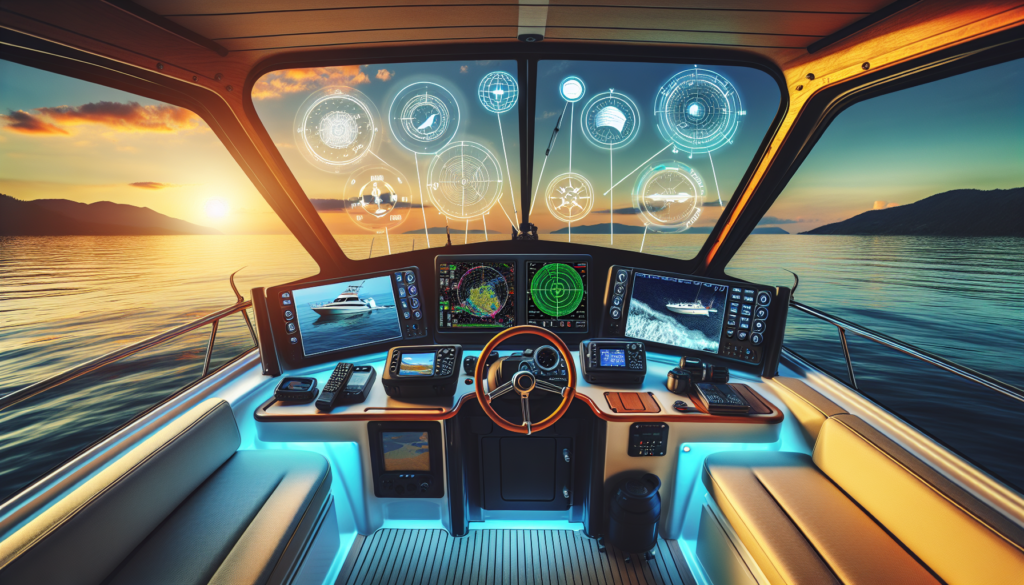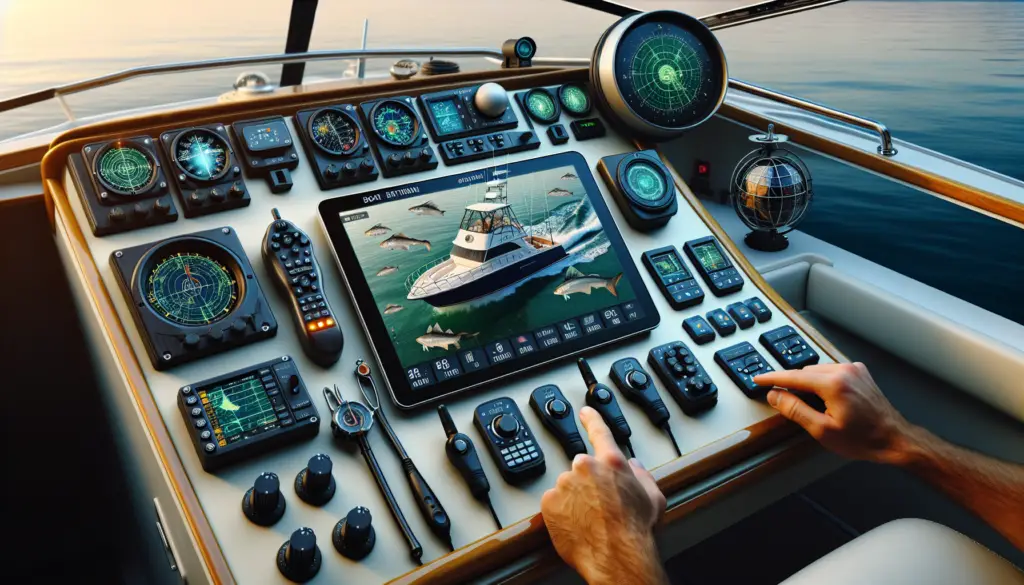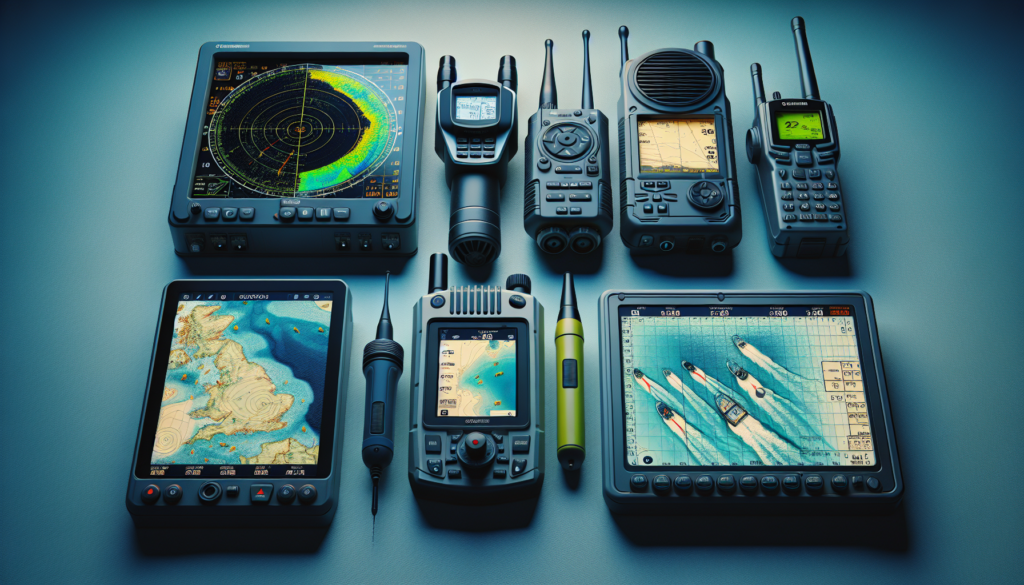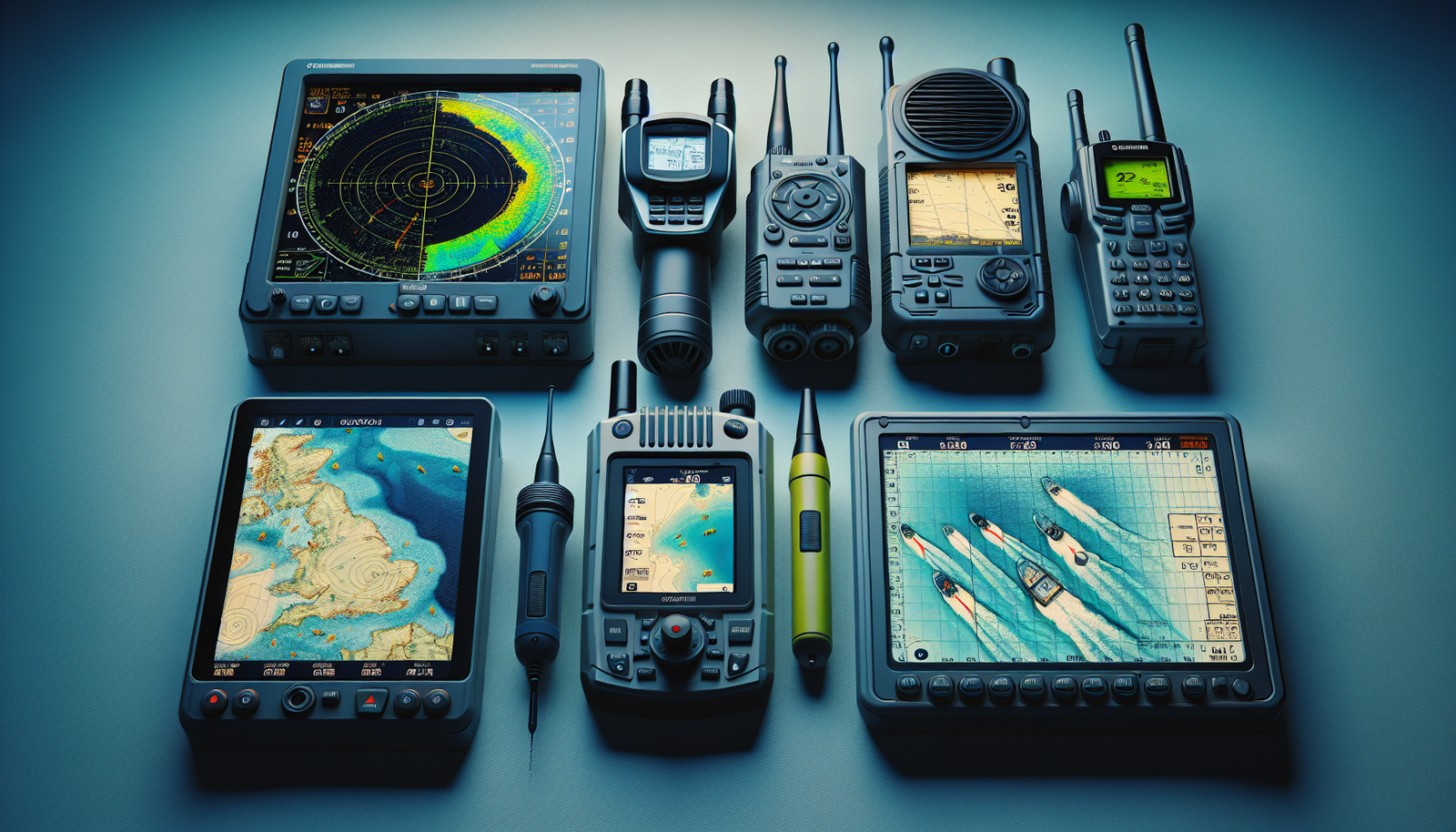Navigating the open waters can be a daunting task if your boat engine isn’t equipped with the right marine electronics. With technology advancing at remarkable speed, new gadgets are constantly being developed to ensure a safer, more efficient boating experience. “Essential Marine Electronics for Your Boat Engine” is an article that offers you a comprehensive guide for understanding and selecting these all-important tools. As you embark on your next aquatic voyage, make sure you are prepared with the top-notch gear that not only makes your journey smoother but also prolongs the life of your boat engine.
Navigational Systems
As you navigate your vessel across various water bodies, the use of navigational systems is paramount. They help pinpoint your current location, route, and destination. For more precision and accuracy, multiple navigational systems can be used.
GPS Units
A GPS unit might be your go-to navigational system. It’s a space-based navigation system that provides location and time information in all weather conditions. It operates independently of any telephonic or internet reception and doesn’t require the user to transmit data. This independence makes the GPS unit an efficient and reliable instrument during your marine expeditions.
Radar Systems
When visibility is limited due to weather conditions, a radar system becomes invaluable. It uses a beam of radio waves that are bounced off objects in their path. Radar helps you detect other vessels, landmarks, and weather changes. The signals that are reflected back to the radar unit are then analyzed to determine the object’s position.
Chartplotters
A chartplotter is another essential piece of technology which displays a graphical representation of your vessel’s location and surrounding areas. It integrates GPS data, allowing you to plot courses and view your progress in real-time. This tool can also predict the boat’s future location based on current speed and heading.
Sonar and Depth Finders
Sonar and depth finders are crucial in determining the underwater landscape beneath your vessel. By sending sound waves into the water and picking up their reflections, they can reveal obstacles, bottom contours, and depths.
Communication Devices
Communication devices are key when you’re out on the water, ensuring your safety and keeping you connected regardless of your location.
VHF Marine Radios
VHF marine radios are an excellent mode of communication. They are widely used for their powerful signal strength and capability to connect directly to rescue services. Additionally, they facilitate communication between nearby vessels and harbormasters.
Satellite Telephones
When you venture beyond the range of cell towers and VHF radios, satellite telephones can be a lifeline. They connect through satellites orbiting Earth, allowing calls to be made and received anywhere in the world.
Wi-Fi Range Extenders
Wi-Fi range extenders can extend the range of a wireless signal, improving internet coverage for your devices onboard. This is particularly useful if you’re running apps for navigation or weather updates.
AIS Transceivers
Automatic Identification System (AIS) transceivers provide safety at sea by exchanging navigational data with other AIS-equipped vessels. This can help avoid collisions and provide a real-time picture of marine traffic.

Fish Finding Devices
For the fishing enthusiasts out there, fish finding devices are indispensable.
Stand Alone Fishfinders
A standalone fishfinder uses sonar to identify fish in the water. It sends out sound waves that bounce off objects beneath the surface, distinguishing between the sea floor and any fish.
Combo Fishfinder / GPS
Combo fishfinder / GPS units are multifunctional devices that offer navigation and fish locating capabilities. They allow for precise pinpointing of fish-bearing locations which can be saved and navigated back to in future.
Autopilot Systems
Navigating a boat manually can be challenging, especially during long voyages. Autopilot systems come to the rescue, allowing for automation of steering and maintaining of course.
Tiller Pilots
Tiller pilots are designed for smaller vessels and can handle the steering for you. They’re a reliable device when you need a break or when you’re single-handedly managing the vessel.
Inboard Autopilots
Suitable for larger vessels with inboard engines, inboard autopilots are more complex systems. They help maintain course in various weather conditions and water currents, offering more precision and control.
Outboard Autopilots
Outboard autopilots are suited for vessels with outboard engines. By maintaining the boat’s position and course, they free up your hands, enabling you to focus on other tasks.

Weather Monitoring Instruments
To ensure a safe and smooth sailing experience, it’s important to keep a tab on weather conditions.
Marine Barometers
Marine barometers measure atmospheric pressure and help predict weather changes. A drop or rise in barometric pressure can indicate an incoming storm or fair weather, respectively.
Wind Meter Devices
Wind meter devices are vital when estimating your vessel’s speed and direction. By understanding wind patterns, you can set better sails and ensure smooth navigation.
Weather Stations
For comprehensive weather data, onboard weather stations are valuable. They monitor conditions such as temperature, humidity, wind speed, and air pressure, thus providing real-time local weather forecasts.
Entertainment Systems
Time spent on a boat doesn’t have to be only about navigating and fishing, you can have some fun too with entertainment systems.
Marine Stereos
Marine stereos are designed to withstand harsh marine conditions whilst delivering quality sound. They create a lively atmosphere and add to the fun of your boating experience.
Marine TVs and Antennas
Boating doesn’t mean missing out on your favorite shows. Marine TVs and antennas are specifically designed for the marine environment and can provide clear reception even in remote areas.
Satellite Radio Receivers
Satellite radio offers a wide range of channels and remains unaffected by the boat’s location. With a satellite radio receiver, you can enjoy diverse content, from music to news, wherever you are.

Safety Gadgets
Safety gadgets are of utmost importance during boating. These can be the difference between life and death in an emergency.
Emergency Beacon Transmitters
Emergency beacon transmitters send distress signals with your location to search and rescue services in case of an emergency. Quick location identification can significantly reduce response time in crises.
Life Jacket Lights
Life jacket lights are small, waterproof, and attachable to life jackets. They are activated upon hitting the water, making the wearer visible, which is crucial during a night-time rescue operation.
Inflatable Life Vests
Inflatable life vests are lightweight and comfortable. They automatically inflate upon immersion, providing necessary buoyancy in case of an overboard situation.
Charging and Power Systems
To keep all onboard gadgetry working, an efficient charging and power system is essential.
Solar Chargers
Solar chargers use the sun’s energy to charge your devices. Apart from being environmentally friendly, they are also reliable in long voyages when a power source may be unavailable.
Marine Batteries
Marine batteries power your vessel’s electric systems. They are designed for the harsh marine environment and provide a reliable power source.
Inverters
Marine inverters convert DC power from your vessel’s battery into AC power. This allows you to charge and power devices like laptops, TVs, and mobile phones onboard.

Monitoring and Alarm Systems
Monitoring and alarm systems keep a check on your vessel’s health and alert you in the face of potential problems.
Engine Alarms
Engine alarms monitor your boat’s engine for any signs of trouble. An alarm sounding can signal problems like overheating or low oil pressure, notifying you before they escalate.
Water and Bilge Alarms
Water and bilge alarms detect water intrusion or flooding in your boat. They alert you in time to take action, potentially saving your vessel from sinking.
Fuel Management Systems
A fuel management system provides real-time tracking of fuel consumption assisting in efficient fuel use and planning. It can help prevent situations where you might run out of fuel in the middle of the water.
Lighting Systems
For visibility and safety during low-light conditions, good marine lighting systems are crucial.
Navigation Lights
Navigation lights indicate your vessel’s position, direction, and status to other vessels, helping prevent collisions during the night or poor visibility conditions.
Underwater Lights
Apart from aesthetic appeal, underwater lights attract marine life, ideal for those moments if you want to go night swimming or fishing.
Cabin and Spotlights
Cabin and spotlights illuminate the deck or cabin, providing the necessary lighting for operations and activities during the night.
Altogether, these are significant and essential electronics that you need for your marine journey. Always make sure they are functional and up-to-date to ensure a smooth, secure, and enjoyable boating experience.

